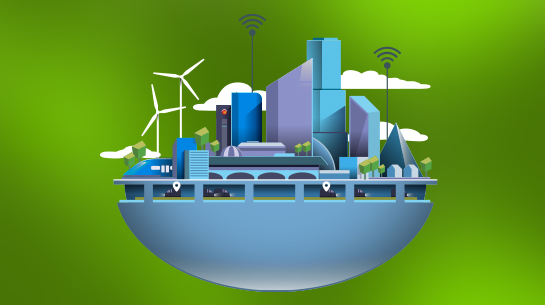
The Future of Smart Cities
What are Smart Cities?
Smart cities have taken more and more space and become very relevant in public and private discussions. These are cities that use various technologies to improve operational efficiency and provide a better quality of public service. The aspects that qualify a “smart city” include the implementation of information and communication technology (ICT) such as the Internet of Things (IoT), WiFi, Big Data, Cloud Computing and Mobile apps, supported by fiber optic infrastructures, 4G/5G Mobile networks, data centers, building automation and control, sustainable urban mobility and public transport, intelligent solid waste management, concern for the social environment, among others.
Neoenergia Projects in Smart Cities
In line with this trend, Neoenergia invests in various technologies to enhance the cities where its concession areas are located. The Energia do Futuro (Energy of the Future) project, completed by the company in the region of Atibaia, in São Paulo, is a Brazilian example of a new model in distribution, in which the use of new technologies and distributed generation cause changes in the flow of energy and require more efficient management. The project has the vision of providing the distributors’ energy transition as a Distribution Network Operator - DNO, to become a Distribution System Operator, the so-called DSO. This change will accelerate the adoption of new technologies and their benefits for the 14 million customers of the group's concessionaires.
"Concerning DSO, we are talking about multi-directional energy flows, and digitalization is a requirement to manage them. For this, we invest in automation, smart measurement, real-time systems, big data and analytics. Energy grids are key for the smart cities of the future, and Neoenergia is at the forefront of generating projects that benefit the entire society", says the superintendent of Smart Grids at Neoenergia, Ricardo Leite.
Atibaia: a city of the future
One of the company's main projects is Energia do Futuro (Energy of the Future), which, by means of smart grids, streamlines energy distribution in the cities of Atibaia, Bom Jesus dos Perdões, and Nazaré Paulista, in São Paulo. The new system allows faster actions in cases of power outage, reducing the time and frequency in which this happens, and has no costs for customers.
In all, 75,000 smart meters were installed in the region. With the new meters, consumption reading can be done remotely, avoiding the need for displacement of the meter reader. In addition, the customer will be able to monitor energy consumption on a daily basis through the company's website. Smart meters will allow customers to identify if they are spending too much in a given period and can save money. This is a way to manage their own consumptio.
The grid modernization involves an even more robust project and seeks the installation of smart grids. This is a worldwide trend in the energy market, focused on safety and distribution efficiency. Smart Grids are composed of a series of automations and technologies that aim, mainly, to provide safety, convenience and sustainability to the energy supply.
An important part of the project was the construction of a 4G mobile telecommunication network to connect, in real time, the power grid automation equipment and the smart meters to Elektro's Operations Center. Technology investment led Neoenergia to have the first smart grid project with 4G LTE (Long Term Evolution) broadband in Latin America and the first private network of its kind in Brazi.
Fernando de Noronha: a smart island
Neoenergia has the Noronha Sustainable Energy Program, which provides for the implementation of renewable energy solutions and encouragement to preserve the archipelago. One of the actions will be the installation of 1048 bidirectional smart energy meters. The system also allows remote access by Neoenergia, to identify and solve any type of incident occurring in the archipelago's operational processes.
Electric mobility is also being planned on the island as a way to mitigate the emission of polluting gases on the archipelago and contribute to the decarbonization process. To ensure the supply of electric vehicles from renewable sources, two new solar photovoltaic plants will be built on the island, totaling 100 kilowatt-peak (kWp) with associated battery banks. The energy generated by the two units will be enough to supply not only the project's cars but also other electrically powered cars. The areas for the plant implementation will be assigned by the Fernando de Noronha Government, and the solar panels of the first unit will be installed in the second half of the year. Recharging points for electric cars will be distributed in strategic locations in the archipelago.
Still focusing on sustainable mobility, Neoenergia will encourage the use of electric bicycles for commuting by residents and tourists visiting the island.
A smart energy storage system is also part of the island's energy innovations. Composed of two modules with storage technology in lithium-ion batteries, the initiative was structured through the R&D Program.
Based on the concept of energy storage, the initiative is an alternative to supply the periods of intermittence of renewable energy sources, expanding their use.
News
2025-04-15
Nova campanha da Neoenergia celebra a potência feminina no esporte e reforça apoio às atletas embaixadoras da marca
2025-03-27
Instituto Neoenergia lança chamada inédita unificada de editais para apoiar projetos sociais
2025-03-21
Neoenergia é reconhecida entre as empresas mais exemplares do mundo em sustentabilidade
2025-03-14
Neoenergia lança campanha para fortalecer o relacionamento com o cliente
2025-03-13
